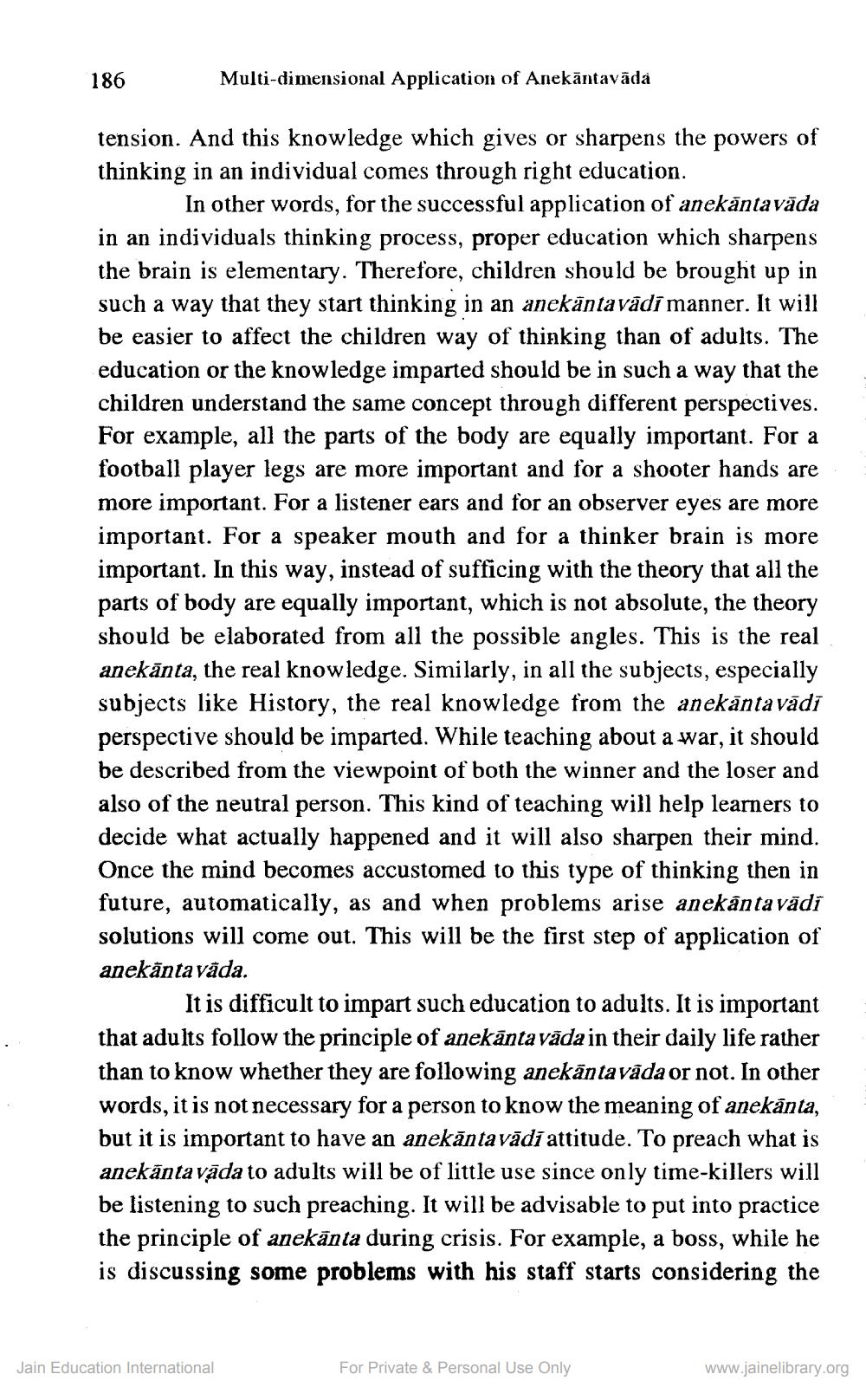________________
186
Multi-dimensional Application of Anekāntavāda
tension. And this knowledge which gives or sharpens the powers of thinking in an individual comes through right education.
In other words, for the successful application of anekāntavāda in an individuals thinking process, proper education which sharpens the brain is elementary. Therefore, children should be brought up in such a way that they start thinking in an anekantavādī manner. It will be easier to affect the children way of thinking than of adults. The education or the knowledge imparted should be in such a way that the children understand the same concept through different perspectives. For example, all the parts of the body are equally important. For a football player legs are more important and for a shooter hands are more important. For a listener ears and for an observer eyes are more important. For a speaker mouth and for a thinker brain is more important. In this way, instead of sufficing with the theory that all the parts of body are equally important, which is not absolute, the theory should be elaborated from all the possible angles. This is the real anekānta, the real knowledge. Similarly, in all the subjects, especially subjects like History, the real knowledge from the anekānta vādi perspective should be imparted. While teaching about a war, it should be described from the viewpoint of both the winner and the loser and also of the neutral person. This kind of teaching will help learners to decide what actually happened and it will also sharpen their mind. Once the mind becomes accustomed to this type of thinking then in future, automatically, as and when problems arise anekantavādi solutions will come out. This will be the first step of application of anekantavāda.
It is difficult to impart such education to adults. It is important that adults follow the principle of anekāntavāda in their daily life rather than to know whether they are following anekāntavāda or not. In other words, it is not necessary for a person to know the meaning of anekanta, but it is important to have an anekāntavādi attitude. To preach what is anekānta vāda to adults will be of little use since only time-killers will be listening to such preaching. It will be advisable to put into practice the principle of anekānta during crisis. For example, a boss, while he is discussing some problems with his staff starts considering the
Jain Education International
For Private & Personal Use Only
www.jainelibrary.org




